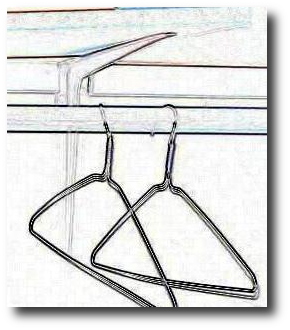Jennifer TatroeJuly 2008 GoneThings started disappearing on a Thursday. At first, it was only food. Angela left three cookies on a plate in the kitchen, but when she turned around, there were only two. She set a glass of soda on the coffee table, but when she left the room and came back, it was gone. She had no roommates, no friends to speak of, no pets — there was no one to blame, so she chalked it up to her own absentmindedness. On Friday morning, a mushroom and chive omelet went missing, along with an entire pot of coffee. That evening, it was a full order of sesame chicken and its accompanying rice. She ended up eating a rolled-up piece of bologna and a pickle for dinner, not daring to leave either of them unattended. She ate that way all weekend, standing eagle-eyed in front of the refrigerator, hands clenching her food like a magic show volunteer gripping a coin. Only once did anything (a kumquat) vanish from her hand, but on Monday morning, she opened the refrigerator to find nothing but empty Tupperware and mysteriously clean condiment jars. Her keys disappeared that morning too, but that was always happening, so she used the backup set she kept in the junk drawer next to the sink. When she got home, the junk drawer was empty and so was the cookie jar. Angela sat down in the middle of the floor (her couch had disappeared while she was in the kitchen) and cried. She had really needed a cookie. Before her phone disappeared, she called the insurance company. “Am I covered for object disappearance?” she asked. “I’m not sure I understand,” the operator said. “Do you mean lost articles?” “Not lost,” Angela said. “Disappeared. Things are disappearing.” “Take an inventory,” the operator said. “If anything has been stolen, file a police report and call us.” Each morning after that, Angela filled out a sheaf of forms, noting each item’s location and circling the ones that had disappeared since the previous day. She hadn’t realized how many things she had. Seventeen forks. Nine shades of eyeshadow. Forty-three pens. Thinking of future inventories, she put six of those in her pocket and hoped. The next day, there were only twenty-four pens, but thankfully, the six were still there. She started being late for work. The inventory took less time each day, but her alarm clock disappeared, so it was harder to get up early for it. Her boss, a young go-getter with greased-back hair, called her into his office to issue a formal warning. “I’m sorry,” she said. “I’m having issues at home.” “Maybe you should talk to HR. I need you to leave home at home.” She realized, then, that things didn’t disappear from work, so she brought all her most precious possessions to the office. She made a file folder labeled “Kodak Account” for her photos. She locked her passport in her desk drawer. She put her signed copy of Neverwhere backwards between two reference books, rather wishing she had never read it. She thought about bringing her collection of Russian nesting dolls, but at the last minute, she left them at home, and the two smallest ones in each set were gone by the time she returned. On the second Saturday after it started, Angela took things into her own hands. She threw away the twenty-four perfect attendance certificates from her grade school years, donated her prom dress to Goodwill, and culled her book collection by half (not that it was difficult, only sixteen books were left.) She sold all her DVDs on eBay, putting them in her car for safekeeping until the auctions ended. She left her empty spice rack on the curb, gave away the linens for the guest bed she no longer had, and mailed her brother the iPod he’d been coveting since she bought it a month before. He called her two days later to ask if she was contemplating suicide. “I heard it was a warning sign when someone starts giving away their possessions,” he said. “I’m worried about you.” “I’m fine,” she said. “I’m trying to simplify.” After two weeks, her inventory was down to a page and a half. She’d taken to eating all her meals at the diner across the street, paid for by auction proceeds and the money she saved by not buying anything that might be gone the next day. She wasn’t at all surprised when, on a rainy afternoon, she came home to find nothing left. The front door stood wide open, surrounded by shattered glass from the window the thieves had broken. Angela saw the muddy footprints they’d left, followed them from one doorway to the next, and at each yawning chasm of a room, she laughed. Tip the AuthorIf you liked this, tip the author! We split donations, with 60% going to the author and 40% to us to keep the flashes coming. (For Classic Flashes, it all goes to support Flash Fiction Online.) Payments are through PayPal, and you can use a credit card or your PayPal account. About the AuthorJennifer Tatroe Jennifer Tatroe recently moved to the Pacific Northwest after ten years in Colorado. She’s a stay-at-home mom who belly dances, spins fire, plays Dungeons & Dragons, and feeds her husband and seven-year-old son a steady, Midwestern diet of fresh sweet corn, and cream of mushroom soup-based casseroles. She has a B.A. in English and Rhetoric from the University of Illinois and has recently had work published online in Flashquake, Boston Literary Magazine, and Every Day Fiction (twice). You can learn more about her at http://www.jennifertatroe.com. Your Commentscomments powered by DisqusCopyrightCopyright © 2008, Jennifer Tatroe. All Rights Reserved. |


